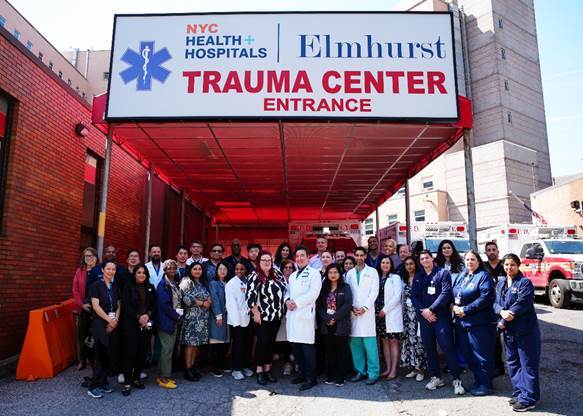Hundreds of thousands of patients diagnosed with coronary artery disease (CAD), or blocked heart arteries, live longer and have fewer heart attacks and strokes when treated first with bypass surgery rather than a popular, less-invasive procedure called stenting, heart experts confirm.
Open-heart bypass surgery has been the mainstay for treating blocked coronary arteries since the 1970s. But more than one million patients a year are opting for stents – tiny wire tubes placed non-surgically in arteries through a catheter – because of the significantly shorter recovery time needed. The convenience of stents, however, is not worth a sicker heart in the long run, landmark studies comparing the procedures show.
“Once a patient is diagnosed with CAD, a treatment decision often must be made quickly,” said Dr. Mark W. Connolly, Director of Cathedral Heart and Vascular Institute and the Department of Cardiothoracic Surgery at St. Michael’s Medical Center in Newark, N.J. "Receiving the right treatment the first time means patients may live longer, have fewer heart attacks and need fewer repeat procedures."
Bypass surgery, stents and drug therapy are the three major options for treating CAD, the leading cause of death in the United States. CAD, which affects more than 17 million Americans, often leads to fatigue, chest pain and heart attack. The major risk factors are high cholesterol, high blood pressure, smoking, high fat diets and a sedentary lifestyle; having diabetes also makes CAD more aggressive.
The invention of stents was viewed as an important technology advance, quickly overtaking bypass surgery as the preferred treatment for blockages that do not respond to medication. With patients eager to avoid surgery, stents were offered to all, even those patients with most severe CAD. However, recent long-term studies show bypass surgery more effectively restores blood flow to heart muscle, improves symptoms and preserves the heart’s pumping ability over time even in people with moderate CAD. In fact, in a recent study, moderate and severe CAD patients who were treated with stents when they should have had bypass surgery were 28 percent more likely to suffer a stroke or heart attack, 46 percent more likely to require additional procedures (more stents and eventually bypass surgery) and 22 percent more likely to die.
Convenience aside, experts caution patients to ask their doctors at the time of their angiogram (X-ray test for diagnosing CAD): "How severe is my heart disease, and what is the best treatment decision for me?" Additional questions patients should ask include:
* "Will my case be reviewed at the time of an angiogram by a ‘heart team’ consisting of cardiologists plus a heart surgeon?"
* "Are there additional treatment considerations for me such as age or diabetes?"
* "Does my treatment recommendation follow the guidelines set forth by professional organizations?"
"The key is for patients to be informed about their options prior to being treated," adds Connolly. "If you or a loved one suffers from CAD, educate yourself before an angiogram, as you may need to make a ‘game time’ treatment decision."
The educational campaign Decisions of the Heart helps explain the best treatment option based on individual levels of CAD.
Courtesy ARA


































